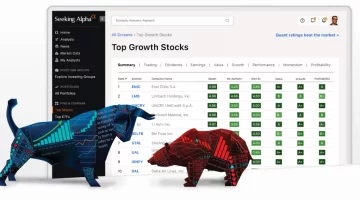Is Whole Life Insurance an Investment Product?
While a lot of people argue that life insurance can be used as an investment product, it is not. First off, when you invest, you are allocating money expecting to gain a profit. And whole life insurance does not work that way. The following are reasons why whole life insurance cannot be used as an investment product.
It is Expensive
When you purchase a whole life insurance policy, then you should expect to pay very high premiums. If you do the math, you will find that you are paying very high premiums while there are way cheaper alternatives for life insurance policies. Also, the expensive premiums don’t have any profit in return, they only grow a small interest. This interest is an unrealistic amount for someone trying to invest. Based on the quote engine on InsureChance.com, it can be as much as ten times as expensive.
It is Undiversified
Another reason why whole life insurance is not a good investment product is that it is undiversified. When making an investment, you want to spread your risks and invest in a wide portfolio. Whole life insurance is not diversified and does not provide different options for you. So, when you buy a whole life insurance policy and don’t find it to be a lucrative enough investment, you will lose everything if you pull the plug on it.
It is Illiquid
A good investment is one that is liquid. Liquidity allows you to get back the amount you initially invested. Whole life insurance, on the other hand, does not offer that privilege. Once you start making the premium payments, the policy stays in force until you die or if you stop paying for it. You lose everything when you stop making the premium payments, and even if you do pay them and you die, only the death benefit is paid to your beneficiaries. This means that all the cash value accumulated is lost if you don’t use it during the term of the policy.
It is Not Transparent
Whole life insurance also lacks transparency. When you buy a whole life insurance policy, then you will likely be charged additional fees that are not initially mentioned in the beginning of the policy. Whole life insurance is already expensive, but this additional cost can further increase the overall costs that you were not prepared for.
When is Whole Life Applicable?
From an investment point of view, whole life insurance is not worthy. However, it is still important to purchase a whole life insurance policy, and below are scenarios when it is best applicable.
If You Want to Protect Your Family
Whole life insurance provides coverage for the rest of your life, and pays off the death benefit to your beneficiaries regardless of when you die, as long as the policy is in force. But with term life insurance, the policy only pays off the death benefits if you die within the term of the policy, meaning that your beneficiaries don’t get anything out of it if you outlive your term.
As such, whole life insurance gives you a piece of mind knowing that your family’s future is protected regardless of when you pass away.
When You Want a Fund for Emergencies
Another scenario when whole life insurance is when you want a source of income for emergencies in the future. Whole life insurance offers a cash value component that you can use for your personal needs. This cash value is made from the premiums made from the policy, and can also be borrowed against in the future.
One of the main uses of this cash value is retirement. So, whole life insurance can also be used to provide an extra source of income for retirement.
A great advantage of the cash component is that it grows tax-deferred. This means that the cash value component grows tax-free and as such has a high growth rate.
Take-Home...
Whole life insurance is not an investment product. So, if you are looking for an investment, then whole life insurance should not be one of them. It has its own benefits, but always make sure to do prior research before buying any product. Use your whole life policy to protect the future of your loved ones, and to ensure that your estate taxes are paid off even when you die especially if you own a large estate.
More to Read:
Previous Posts:






